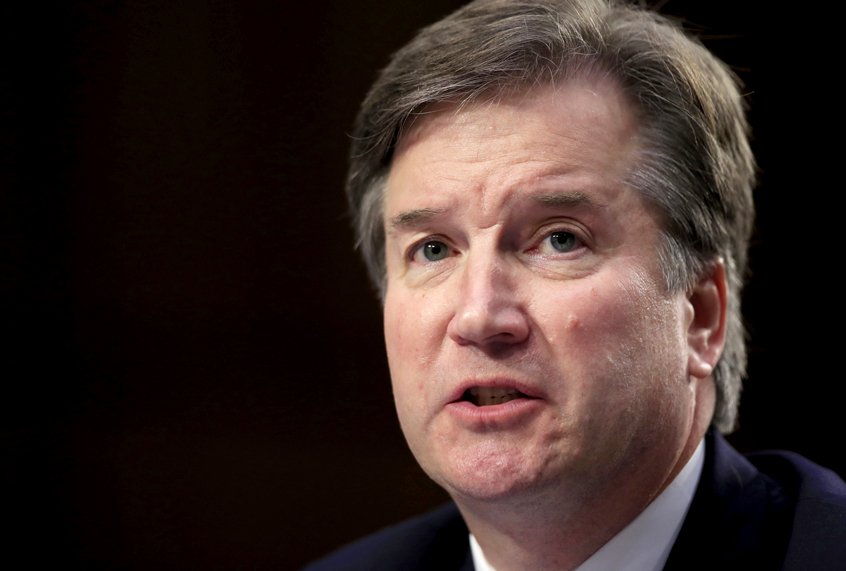Judge Brett Kavanaugh, President Donald Trump’s nominee to fill the vacant seat on the Supreme Court, dodged two questions from Democratic senators related to presidential investigations during his confirmation hearing Wednesday — if a sitting president is required to comply with a subpoena and if a president has the ability to pardon himself — stating that both were hypothetical.
“Can a sitting president be required to respond to a subpoena?” California Sen. Dianne Feinstein, the top Democrat on the Senate Judiciary Committee asked Kavanaugh during the second day of his confirmation hearings.
Citing a precedent dating back to the 1993 confirmation hearings of Supreme Court Justice Ruth Bader Ginsburg, Kavanaugh declined to answer the senator’s question. “As a matter of the canons of judicial independence, I can’t give you an answer to that hypothetical question,” he responded to Feinstein.
Under the so-called “Ginsburg standard,” a Supreme Court nominee may decline to comment on specific cases or topics that could potentially come up before a judge on the nation’s high court. According to TIME magazine, “Many experts say that, over the years, the application of the Ginsburg standard has significantly expanded in scope — far beyond what it meant when the liberal justice first utilized it.”
“The Ginsburg standard is something that somebody else came up with — that’s a phrase used by subsequent judges who were trying to avoid talking about their views,” Margo Schlanger, a current professor at the University of Michigan Law School and former Ginsburg clerk told the magazine. “If you watch the tapes of her confirmation hearings, you will hear her over and over and over again talking about her views.”
Kavanaugh pointed out his commitment to the “Ginsburg standard” at the beginning of the hearing, claiming that the principle underscored his commitment to judicial independence. He reiterated that notion to Feinstein.
“My understanding is that you’re asking me to give my view on a potential hypothetical,” Kavanaugh said. “And that’s something that each of the eight justices currently sitting in the Supreme Court, when they were sitting in my seat, declined to decide hypothetical cases.”
Kavanaugh was also asked specifically about the Supreme Court’s ruling in the 1974 case U.S. v. Nixon, the unanimous decision which forced former President Richard Nixon to hand over subpoenaed materials during the Watergate scandal. The federal appeals court judge called the decision “one of greatest moments in American judicial history.”
The court, he said, “stood up for a moment of judicial independence” at the time. “No one is above the law,” Kavanaugh said of the presidency.
As a part of her ongoing coverage of Trump’s nominee, Salon’s Amanda Marcotte noted Tuesday that “Kavanaugh has historically low approval ratings for a Supreme Court pick, and his nomination is clouded by serious legitimacy concerns.”
“That’s true both because President Trump is the focus of an investigation that has resulted in several numerous guilty pleas and convictions among his associates,” she continued. “And because there has still been no accounting for the way Senate Republicans outright stole a Supreme Court nomination from Barack Obama.”


